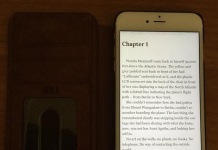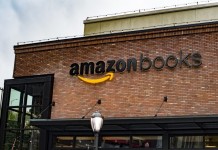 Chris has already covered the Digital Book World article summarizing recent Codex Group research showing that 86% of eBook buyers buy from only one retailer. But I had a few thoughts he didn’t cover.
Chris has already covered the Digital Book World article summarizing recent Codex Group research showing that 86% of eBook buyers buy from only one retailer. But I had a few thoughts he didn’t cover.
The article posited that the ease of infrastructure was the number one reason people stayed with a particular retailer, and that made sense to me. Although I don’t currently own a Kindle device, I used to, and I’m pretty much “trained” to go back to Amazon, if for no other reason than it makes it easiest to keep track of what I’ve purchased. I’m usually good about adding books to Calibre, but I’m not 100%, and I have accidentally bought books twice, from different retailers.
So, the article got me to thinking. What would it take to get a reader to switch retailers or to shop around and buy from different ones?
Well, hardware is certainly an issue. If a reader owns a reading device from a particular store, and it will be difficult to load a book onto his device, he probably won’t buy anywhere else. This is the biggest impediment, I imagine, to getting Kindle owners to switch stores, and, of course, it’s virtually impossible to come up with a scenario where a non-iOS owner would ever buy from iBooks. So it makes sense that, in the U.S., the retailers with the more popular devices tend to have the greatest loyalty. (Okay, calling the Nook “one of the more popular devices” might be a stretch, but you get what I mean, right?)
The tech savvy part of me says no DRM is the answer, and Chris also covered that in his article. But I don’t think it really is. I wonder how many readers of eBooks have even heard of Calibre and would know to format switch even if all books were DRM free. So, it’s an answer, but I don’t think it’s the answer.
Price? Well, maybe, but again, you have the issue of device restrictions. Tablet users who are comfortable with managing multiple reading apps can certainly shop based on price, but again, how many really do? I’m firmly in the tablet camp, so I can shop from Nook and Kobo, but mostly I don’t because, again, Amazon’s site has made it so easy for me, and the other sites are just not as user-friendly.
Which leaves me floundering for a good answer. Convenience is huge. I personally rarely price shop, even though I can. It’s just easier to buy from Amazon, even though I’m quite capable of buying from anywhere. Oh, and their gift card system is an incentive as well. It’s just easy, and way better than B&N’s, unless they’ve changed it recently. I prefer to buy with gift cards to avoid tiny charges on my credit card.
By the way, the Digital Book World article didn’t come up with much better solutions either. Here was their answer:
For the small retailers, the picture is fairly bleak. It’s clear, though, that they need to think of ways to keep their small customer bases more loyal, perhaps through better sales and marketing of dedicated e-reading devices or promotions that reward loyalty.
Loyalty promotions might work, depending on what they looked like. As long as agency pricing is out, they are technically feasible, but again, they would have to be really good to make me switch.
I’m open to suggestions here. I really thought, when I started this article, that I’d come up with an answer, and I’m disappointed that I couldn’t. I’m not blindly loyal to Amazon. There has to be something that would make me switch, but maybe I have too big a blind spot, and I’m missing it.

































back when books were only in paper the major criteria for me in terms of purchasing and loyalty to a store was proximity to me(I live in a large city and don’t drive) and having the books I want to purchase. Now that I read on a kindle amazon certainly fulfills all those criteria. Price is important but secondary.
The only answer I can think of… and I am not sure at all that this is a good idea is to segregate e-readers and e-reading apps from book stores. Right now, Amazon, Kobo, B&N, etc., make it easy to buy and read books from their devices and apps, but not so easy to buy books from other stores. Yes there are apps like Aldiko which can be used with most of the stores (Though I don’t think you can use it with Amazon), but other than enthusiasts of Project Gutenberg, smashwords, etc., how many people are likely to use Aldiko as their primary e-reader?
On the other hand, if all ebook readers (with wifi) had to allow other book stores to be added, I think it might make it much easier for people to shop at other stores. Imagine searching on your e-reader for an e-book the same way you might search for a computer on Google. It provides you links to ebook sellers that can be sorted based on price, format, preferred retailer, etc.
I can’t imagine this ever happening, but it would be nice.
Until others match Customer support, text-to-speech, overall costs, and returns policy at Amazon, my choices 95% of the time will to head there first over Barnes & Noble, KOBO etc.. Although I have a Nook HD (for epubs from library services) and several apps for other e-book retailers I rarely use them. Amazon is totally user-friendly – I can return a mistaken purchase almost instantly or even later with no questions asked and finding Audible book matches at very low prices has been a great Amazon feature since my eyesight has been compromised. I have never sought any iBook purchase since they do not support reading on other devices, so I can not comment on their quality of service, and as I could never afford any iPad in this lifetime I doubt that will change. Alas,”Literature” on paper is over for me as much as I love book stores and still spend to much in them.
I’ve considered dropping the Kindle platform in the past and may do so in the future, but it has nothing to do with better innovation from the other guys or fear of the walled garden. Amazon seems enamored with pushing ads (Special Offers) and recommendations. When the Kindle Fire HD was first announced in 2012 it would be available with the ads enabled. Amazon dropped that plan, but it would have been a deal breaker for me. If perchance Jeff Bezos succumbs to the siren song of the admen and truly enforces ads on all Kindles, I would jump ship for a different platform.
As for some one else just enticing me away: have more books I want to read. And those books probably will not be self-published. I guess that means publishers would have to stop selling to Amazon.
Okay, you’re confirming it’s not just me. Convenience is huge, and Amazon is just so darned convenient.
I never minded the ads when I had a Kindle Touch. I actually found some good books that way. Saving a bit of money on the hardware was worth it.
You’re looking for a solution to a non-existent problem. The days when ebooks were mostly read by early adopters who enjoy messing with software (or even know how) are long gone.
The average person reading an ebook today has no interest in buying books from multiple venders and why should they? Any flavor of Kindle, or the Kindle app on pretty much any device except a toster, and the Amazon advantages totally overwhelm any other option. It’s been years since I used Calibre for anything. The only place I ever bought ebooks besides Amazon was Baen and even they sell on Amazon now.
Currently I’m using a Fire HDX 7 for reading and a Fire HDX 8.9 for the web at home but away from my desktop. I also have an iPad Air used only for one app that requires flash. Give me a good reason that I should buy an ebook somewhere other than Amazon, and it has to be something that is an improvement for me as individual user, not some pie in the sky well society would be better off if Amazon wasn’t so big, or OMG DRM SUCKS, and we’ll talk.
@Vicki, ah, I think you have nailed the real issue. It’s a problem for publishers who want to continue to hate Amazon and desperately hope to break their lock in. And perhaps for authors who might prefer different royalty terms from other retailers. Readers don’t care, and until something comes along to make them care, they’ll keep doing what they are doing.
I’m one of those who still uses Calibre, but that’s because I prefer to read in other apps besides Kindle, at least until they support KitKat’s immersive mode. Then I’ll probably go back.
This article doesn’t touch on ebook format, but Amazon pretty much anticipated this question by making the Kindle (and Kindle apps) use their version of the Mobi format (they even bought Mobi). Ostensibly, it was so they had total control of how Kindle books function and look, but the effect is that even non-DRM books can’t be sent to a Kindle if they are in epub, the de facto standard format for ebooks. Sure, without DRM you can use Calibre or other conversion software, but realistically, very very few people are doing that. The major selling point of ebooks is convenience.
It’s actually pretty easy to put a non-DRM, non-Amazon book on a Kindle IF it’s already in Mobi format. O’Reilly Technical Books sells non-DRM’d ebooks, and they will even email their books to your Kindle, if you whitelist their address and give them your Kindle’s email address. You do need to worry about delivery charges, if you’re using 3G to connect. I have a couple of posts on my blog on how to pout non-Amazon books on a Kindle, and searches on that topic are the source of at least half the hits the blog gets, so I think people do want to be able to do this. http://carmenspage.blogspot.com/2013/02/more-on-putting-non-amazon-books-on.html and http://carmenspage.blogspot.com/2011/07/kindle-tips-buying-non-amazon-ebooks.html
I did just recently switch retailers — from Kobo to the Google Play Store. The initial reason was that I wanted a book I’ve bought a couple of times in hard copy, so I didn’t really want to buy the ebook, but I wanted to read it. This made me more price sensitive than usual, and it was a dollar cheaper on Google Play.
But then I started looking for other books and found the Google site was just easier to deal with. Once I’ve pushed the “Buy” button, it’s the same toolchain to remove the DRM and get it onto my phone, but I find the search faster and easier, although neither is as good as Amazon. But that’s a different toolchain, which for me (a linux and android user) is quite difficult.